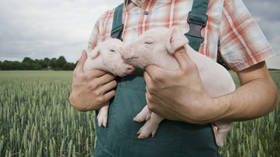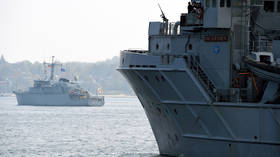German producers warn of meat shortages – Die Welt

Germany may face a meat shortage and a subsequent surge in prices within the next four to six months, Die Welt reported this week, citing the German Meat Industry Association (VDF).
“In four, five, six months we will have gaps on the shelves,” Hubert Kelliger, the head of group sales at meat marketer Westfleisch and a VDF board member, told the news outlet.
According to Kelliger, the worst shortages are expected in the supply of pork. He says Berlin insists on reducing the number of livestock by half in order to protect the climate. However, experts say this would lead to mass shutdowns of meat-producing companies, which in turn would result in a 40% increase in the price of meat.
Cutting livestock numbers could also lead to a decrease in the supply of natural fertilizer, resulting in a drop in vegetable yields or a surge in the cost of production due to the high prices of artificial fertilizers. Either situation would worsen the food crisis in Germany.
While meat industry representatives note that vegetarianism and veganism have become increasingly popular in the country over the last few years, they say that over 90% of the people still buy and eat meat.
Germany has been relying more and more on meat imports rather than domestic production. The share of beef and pork products from abroad has risen in recent months, and the country is currently the biggest meat importer in Europe, according to VDF.
VDF experts say Berlin is making the same mistake in turning to meat imports as it did with energy – increasing dependence on imports could lead to the risk of a food crisis along with the energy crisis. Kelliger says the only way to avoid this is to be self-sufficient in meat production.
For more stories on economy & finance visit RT's business section












